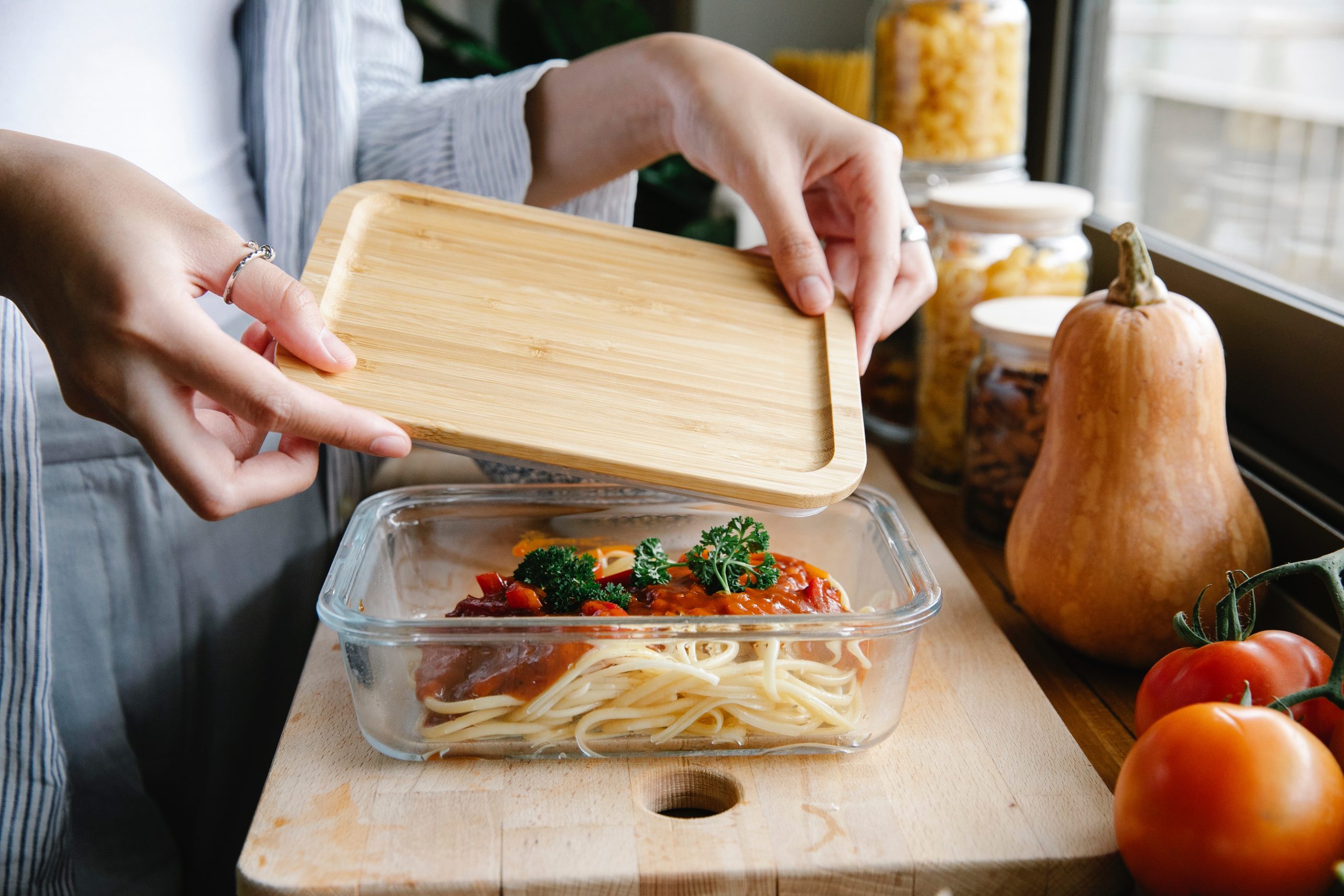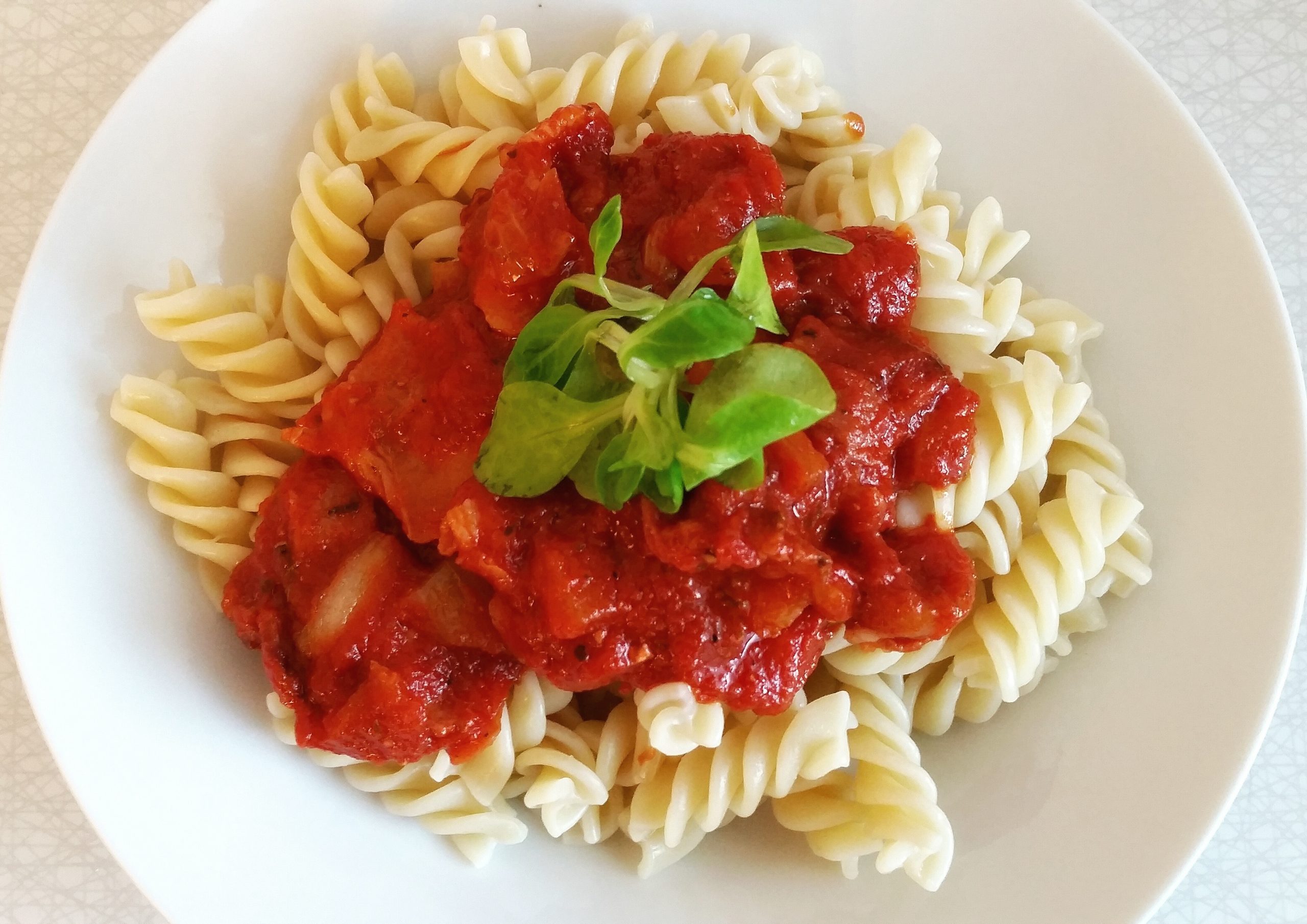You can prepare large quantities of pasta sauce and keep them in your freezer. However, if the ingredients in your spaghetti sauce are creamy and emulsified, you shouldn’t try freezing it. You can successfully freeze spaghetti sauce when you have tomato-based sauces.
When you have a straightforward recipe prepared, freezing pasta sauce is made easier. You might need to be more cautious if you add other components to your sauce. Some vegetables and herbs don’t freeze very well.

What is Pasta Sauce?
The term “pasta sauce” is imprecise and can be used to describe a variety of sauces. Let’s analyze that for a moment.
Any of the many savory garnishes and ingredient combinations improve the flavor of the pasta meal being served. Traditional pasta sauces can generally be divided into one of the following categories: tomato or vegetable-based sauces, cream or butter-based sauces, cheese sauces, meat sauces, herb-based sauces, or oil-based sauces, each of which has a range of components included in the sauce base.
Consider the size and form of the pasta noodle when choosing a sauce because some sauces work well with particular kinds of pasta. For instance, thin spaghetti and light tomato sauces work better than round or tubular pasta. The flavor of the pasta is typically more apparent the lighter the sauce.
Best Ways to Freeze Pasta Sauce
Pasta Sauce Freezing Instructions
Simple to do and doesn’t take much effort to prepare, freezing pasta sauce is simple. By doing the following easy steps, pasta sauce can be frozen:
Before attempting to freeze pasta sauce, you must allow it to cool. Take the sauce off the stove after it has cooked for a specified time. It is a good idea to transfer it into a new container to aid in its quick cooling.
To avoid having to defrost your pasta sauce all at once, it’s a good idea to divide it into portions before freezing it. To allow for expansion, make sure to leave some room. Tupperware containers or freezer bags with sealable closures are both acceptable options.
If using a freezer bag, seal the items while taking out as much extra air as possible. Use lids to seal Tupperware containers to make sure they are airtight tightly. Wrap them with a piece of cling film if they aren’t.
Before putting your sauce in the freezer, label the bag or container with the date it was made and the date it should be consumed. Then, it is secured in the freezer for six months.
Sauce for Pasta Made with Cream
While some websites claim that cream-based pasta sauce shouldn’t be frozen, you must exercise more caution.
As part of the sauce, be careful not to freeze too many whole or chopped vegetables as they may mush once frozen. When your cream-based sauce is frozen, you’ll also notice that it separates.
For the texture you want, thoroughly mix it before freezing. The same textural changes will occur if cheese-based sauces are frozen, but it is safe to do so.
How Long can you Freeze Pasta Sauce?
Pasta sauce can be kept frozen for about six months. To ensure that your sauce is well preserved when frozen, you should be careful to divide it into sensible portion sizes and store them in suitable sealed containers.
It’s best to freeze sauces from items with strong flavors in your freezer because you don’t want the sauce to absorb the flavors from the other items. Otherwise, you might experience a disappointing surprise when tasting the sauce!
What is the Correct Method of Defrosting Pasta Sauce?
Placing pasta sauce in the fridge for the night is the ideal way to defrost it. The night before you intend to use it, take it out of the freezer so it will be ready to reheat when you’re cooking.
A different option is to thaw frozen pasta sauce in the microwave. This needs to be done slowly, and you should take it off the heat every few minutes to stir it well. You ought to heat it as desired after it has defrosted.
Can Pasta Sauce be Refreeze?
If your spaghetti sauce is made with tomatoes, you can thaw it and refreeze it without any problems.
It’s better to avoid refreezing dairy-based sauces after they have previously been defrosted if you’re using them. This is primarily due to the texture splitting and becoming watery after defrosting.
When it comes to enjoying the sauce, the more times you do this, the more the sauce will deteriorate and lose its original flavor.
What is the Correct Way to Store Pasta Sauce?
If you bought store-bought spaghetti sauce that hasn’t been opened, you need to keep it somewhere cool and dry. If the pantry is not an option, you can store the spaghetti sauce somewhere else in the kitchen as long as it is out of the sun.
The spaghetti sauce container must be kept in the fridge at all times after being opened. The shelf life of the sauce will be significantly shortened if it is kept outside the refrigerator because it has already been exposed to microorganisms.
The refrigerator must always be used to store homemade spaghetti sauce. If you bottle the sauce, it can be kept in a cool, dry area outside the refrigerator.
If you need to save homemade spaghetti sauce for longer, one alternative is to freeze the sauce.
What are Different Types of Pasta Sauce?
Pasta is frequently topped with various sauces, some of which are listed below along with a brief description: Alfredo, Arrabbiata, Béchamel, Classic, Carbonara, Formaggi, Madeira, Marinara, Marsala, Pesto, Puttanesca, Ragù, Romesco, and Vodka sauce. Search the glossary for the desired sauce for a more detailed description.
The meal known as fettuccine Alfredo is often made using Alfredo sauce and fettuccine pasta. Grated Parmesan cheese, butter, pepper, and nutmeg are all ingredients in the sauce, which is made with heavy cream or half-and-half.
The fiery tomato sauce known as “Arrabbiata” is made with chile peppers and gives pasta, meats, poultry, seafood, and other dishes like pizza a richer flavor.
They add boiling milk to a white roux to make the béchamel sauce, a basic white sauce (heated butter mixed with flour). According to the meal served with the sauce and desired flavors, extra ingredients can be added to the thickened milk to create a creamy white sauce.
Classic Sauce: A sauce prepared in a rustic manner that is typical of the area from where it originated, using traditional or local ingredients. The components almost often made into a red sauce may include tomatoes, diced veggies, olive oil, and seasonings. It is a sauce frequently used in pasta, poultry, and fish dishes.
What to Look for in a Bad Pasta Sauce?
When spaghetti is bad, you can usually tell rather quickly. Some warning signs to look out for include the following:
One of them is mold inside the pasta sauce jar. Mold typically appears when the jar is opened, exposing the sauce to airborne bacteria after the jar has been opened. After some time has passed while being stored, mold will begin to grow in the pot, and after being put in the pantry, mold will start to grow within a few days. The growth of mold in a refrigerator can take a week or longer.
Mold can grow in jars, including those that haven’t been opened yet.
If you need to save homemade pasta sauce for longer, one alternative is to freeze the sauce.
If you don’t detect any mold in the jar, the next clues to look for are the color and consistency of the spaghetti sauce. If the sauce is bad, it will often be darker and thicker.
Although darker and thicker spaghetti sauce doesn’t always indicate poor quality, the quality can not be very good. You can either throw it out at this point or keep using it.
The last thing to notice should be the aroma of the spaghetti sauce. A high-quality sauce will smell like fresh tomatoes. If something smells strange or off, it’s best to throw it away.
What will Happen if you Consume Bad Pasta Sauce?
Food poisoning is most likely to be to blame for gastroenteritis that appears after consuming pasta sauce. According to Clinic, the lining of your stomach and intestines will become infected and swollen if you consume pasta sauce tainted with an infectious organism.
If the tomato sauce smells too sour or acidic, it has gone rotten.
If it separates, gets thin and watery, and tastes harsh, throw away pasta sauce.
It becomes spoiled if the sauce turns deeper in color and exhibits additional rotting symptoms.
Low Nutrient Density
A nutrient-rich cuisine offers defense-enhancing micronutrients and supports the development of immunity. On the other hand, pasta sauce has poor nutritional value and lacks protein and fiber.
Heart Disease
Foods high in fructose corn syrup, like pasta sauce, are linked to elevated triglyceride levels and cardiac issues when consumed in excess.
Insulin Resistance and Obesity
Foods can cause obesity and insulin resistance with high sugar content and fructose corn syrup.
Heartburn and Acidity
Due to the presence of acids like malic acid and citric acid, pasta sauce, an acidic food, can cause acid reflux and heartburn. Therefore, tomato ketchup should be avoided by people who have digestive issues such as digestive stress or gastroesophageal reflux disease (GERD), says Ms. Palan.
Joint Issues
Foods that have been processed or preserved may increase your risk of inflammation, which could lead to joint issues.
The tissues of the human prostate are susceptible to oxidative DNA damage. Men who consume more tomato products, abundant in the antioxidant lycopene, had a lower risk of prostate cancer. Methods: For three weeks (30 mg of lycopene per day) before their scheduled radical prostatectomy, 32 patients with localized prostate cancer ate pasta dishes made with tomato sauce. We looked at how eating pasta with sauce affected patients who had already been diagnosed with prostate cancer in terms of lycopene uptake, oxidative DNA damage, and PSA levels.
Conclusion
Whether you have a lot of leftover pasta sauce or a large amount of sauce that you want to store, there are ways to freeze pasta sauce to make it last for a long time. Here are some of the best ways to freeze pasta sauce.
The best way to store a cream-based sauce is in the refrigerator. Alternatively, you can store the sauce in the freezer in heavy-duty freezer bags. It’s best to freeze the sauce at 0 deg F to keep it safe for as long as possible. However, freezing your sauce will decrease its shelf life.

